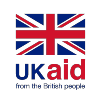According to the ILO, 79 million children are in “hazardous work in the world (pdf)”, which poses an immediate danger to their health, safety and wellbeing. The effect on their mental health and wellbeing is unquestionable. So, as countries around the world reflect on the World Day Against Child Labour understanding and addressing the psychosocial impacts on children must be at the forefront of these conversations.
There are 1.1 million children working in child labour in Nepal (pdf) – yet with the closing down of their industries such as factories, hotels, restaurants, the Adult Entertainment Sector (AES) and domestic work during the pandemic has made them more vulnerable to hunger, trafficking, victimisation and abandonment than ever.
Given the emphasis and importance of CLARISSA’s approach as a child-centred consortium, collecting the life stories of children is very much at its heart. However, the context is fragile and many of these children have been through traumatic experiences in their lives, so the team did not want to ask them to share their stories without provide adequate support and guidance. It is because of this that CLARISSA prioritised safeguarding and mental health and psychosocial support (MHPSS) in Nepal.
However, shortly after CLARISSA launched in Nepal, the pandemic hit. At the time, CLARISSA Nepal had planned to collect the life stories of children and young people working in the AES industry, along with street-connected children, domestic workers, and those working in the transportation sector.
Creating safeguarding guidelines
Despite the pandemic, the team continued to collect the life stories of children. In parallel, the team, with child-led researchers, developed new guidelines on safeguarding and MHPSS based on the principles of the Convention on the Rights of the Child, ensuring the best interests of children, non-discrimination, child participation, survival and development. The process in developing the guidelines included:
- Risk assessment: The risk assessment exercise was carried out among the CLARISSA team, including identifying mitigation strategies. The major identified risks were: not obtaining permission from parents/guardians; drop-out of children/young people from the process; the life story collection process being too time-consuming.
- Checklist preparation: The team prepared the checklist in a safe and friendly environment to collect the stories, ensured the provision of sanitiser, masks, drinking water and food, and addressed other difficulties with children/young people.
- Capacity building on safeguarding and MHPSS: The professional researchers and team were given training on safeguarding and MHPSS, focusing on the life story collection process. The training was also provided to child-led researchers as there was the possibility of during the life story collection process.
- Preparing and reviewing the tools: The team prepared and reviewed the tools for the life story collection process, which were: a Consent Form for story collection/taking photos and videos; a Reporting Form to record the safeguarding and MHPSS information; and a Database to record the identified safeguarding and psychosocial issues.
- Introductory meeting: Before the life story collection process began, the team talked about the importance of the process through individual and group meetings.
- Coordination with professional psychologist: The team signed a memorandum of understanding with a professional psychologist to provide MHPSS as required.
Safeguarding during and after the life story collection
Throughout the process, the researchers identified several children that were upset and distressed. In those moments, support was provided by the researchers as Psychological First Aid (PFA), and the children were referred for psychological support to a psychologist through the safeguarding focal person.
The team is still in contact with the storytellers (children and young people) to monitor any safeguarding issues, and is providing psychosocial support as needed. Based on the follow-ups, 13 children have received individual counselling sessions from the psychologists to overcome their negative feelings and views. 35 children/young people received eight group counselling sessions and were taught about exploring life skills, effective communication, interpersonal skills etc.
Following the life story collection, the team organised a review and reflection workshop with the children and young people who participated. Overall, they felt that the approach to safeguarding and MHPSS was very helpful and considered.
CLARISSA Nepal remains committed to continuing to take care of mental health and safeguarding of children. This is not just for our story collection, or the World Day Against Child Labour, but every day.
